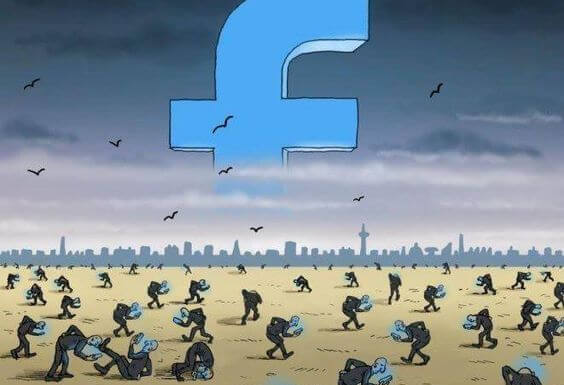Social media filters have crept up on us slowly. Now, they’re on everyone’s phone and it seems that people can’t live without them. But has the time come to say goodbye to them?
They started out as something fun. You took a selfie and added some dog ears or cat whiskers to your photos. You could also decorate your photos with hearts or flowers.
However, little by little, social media filters have become a kind of virtual makeup. In fact, you can hide your wrinkles, your freckles, the dark circles under your eyes, or the spot that’s just appeared on your chin that you don’t want others to see. You can even change your facial features. For example, you can make your eyes bigger, your chin more pronounced, or even change your cheeks.
They negatively affect your self-esteem
For many people, the fun element of social media filters has been left in the background. In fact, virtual makeup has become a necessity. Some people feel extremely uncomfortable if a photo of them without any filters appears.
These virtual touch-ups enhance the completely fictional image of ideal beauty that social networks generate. For this reason, the difference between a person’s mirror image and that seen through a filter makes them feel uncomfortable and insecure. In fact, it causes real emotional suffering.
In the most serious cases, people suffer body dysmorphia. This is a mental disorder where a person worries incessantly about their perceived body imperfections. However, others barely notice them.
They’ve crossed the line
Social media filters haven’t only negatively affected people’s self-esteem and made them develop psychological disorders. They’ve crossed the line into another territory: cosmetic surgery. Indeed, some of the people that undergo cosmetic procedures do so to look more like their filtered selfies.
More and more young people are deciding to get plastic surgery because they think they’ll feel more confident and will be able to do all the things they don’t feel able to do now.
They think that changing their appearance will be a magic solution to all their insecurities and related problems. However, true self-confidence isn’t measured in inches or pounds, nor by the wrinkles or spots on your skin.
Feeling that you can’t live without them
Thinking that you aren’t good enough because you don’t meet your prescribed beauty standards is extremely dangerous from a psychological standpoint. In fact, something may be wrong with you if you need a filter, make-up, or a physical change to your appearance to feel happy.
For this reason, it’s time to seek professional help if you feel you really can’t live without social media filters.
Going to therapy won’t change your body image. However, it’ll change the way you perceive yourself and your physical appearance. A mental health professional can help you understand what’s happening to you and why you feel the way you do. In addition, they’ll help you develop a healthy relationship with yourself.
Make changes
As well as personal changes, you should review how you use social media. You must realize that constantly using filters doesn’t only damage your own self-esteem but also affects the people who see you.
Influencers and public figures are idealized models that people look at. Therefore, something as simple on their part as posting their photos without retouching them could help normalize the unrealistic views many have about them.
Additionally, governments should consider implementing laws that reflect upon this problem. We’re all responsible for promoting mental health.
By reviewing legislation and advertising practices related to social media filters, as well as strengthening mental health care, we could really improve people’s well-being.
I Like Social Networks, Not Fake Virtual Lives
The post Are You Addicted to Social Media Filters? appeared first on Exploring your mind.



















Comments